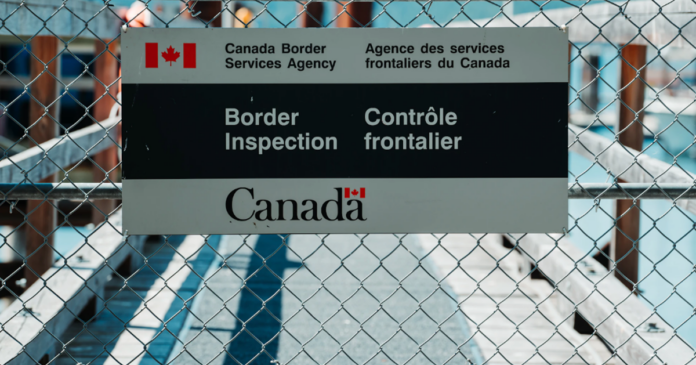There are 300 active arrest warrants out for foreign criminals across Canada, according to the Canada Border Services Agency (CBSA). These criminals include sex offenders and people convicted of violent crimes, all of whom are deemed a danger to public safety and will face deportation.
The border agency is currently tracking over 37,000 foreigners that post a flight risk or a danger to the public. The agency also worries that many may not agree to be questioned or voluntarily attend immigration hearings.
Canada’s auditor general initially raised concerns about the possibility that a large number of foreign nationals facing deportation have evaded the border agency, a fear confirmed by figures released to the Globe and Mail.
The CBSA confirmed that there were 37,326 active immigration arrest warrants as of last month, 33,032 of which are for deportation.
“Removing individuals who are inadmissible for criminality is of paramount importance,” said Guillaume Bérubé, a spokesperson for the CBSA in a statement. He also said that the agency considers all factors involved in “the individual’s danger to the public or flight risk,” in relation to immigration regulations when making an arrest and detention.
“These may include some of the following: association with a criminal organization, engagement in trafficking or smuggling of persons, convictions for sexual offences or offences involving weapons or violence, trafficking in narcotics, etc.,” he said.
The pandemic burdened the operations of the CBSA and slowed the pace of arrests warrants however this year the agency has already issued 4,600 and 3,345 last year, an increase from both 2020 and 2021.
The CBSA said it’s beginning to phase out its Wanted by the CBSA webpage that sought help from the public when searching for criminals as it hasn’t updated the page since 2018. There are still three wanted individuals with their mugshots and descriptions remaining on the page.
One of which is Abdirahman Moumin Okie, a convicted sex offender originally from Ethiopia. He goes by several aliases and is subject to a nationwide arrest. Okie’s last known address was in Montreal.
The CBSA Wanted page described Okie as being, “inadmissible to Canada for serious criminality for being convicted of forcible confinement, committing a sexual assault along with another person and conspiracy to commit sexual assault.”
Conservative immigration critic Tom Kmiec has expressed disappointment in the Liberal government jeopardizing the “safety of Canadians.”
“I’m very concerned that the government is allowing known criminals to remain in Canada despite having issued papers to deport them,” said Kmiec on Monday.
Foreign nationals convicted of a crime in Canada that face deportation are obligated to complete their sentence prior to being deported. They remain in custody after their prison sentence or may live in public on parole and certain offenders may be put on “immigration bail” for an intermittent time until they are deported.
Some offenders appeal the decision to be deported and have them expelled in the courts, sometimes done through judicial review.
A report by the auditor-general discovered that the CBSA has lost track of “a large number of foreign nationals” who were facing deportation, in some cases for years.
“It issued immigration warrants for their arrest but seldom completed the annual investigations to locate those with criminality,” said the report, released in 2020.
Some case files had delays in processing data and others were missing entirely, including high-priority cases. Offenders without passports and other travel documents meant that they could not be deported however, “little was done to obtain these documents.”
There are many enforceable cases piling up that have yet to be processed due to the CBSA not knowing the whereabouts of the offender. “Most of the accumulated cases had been enforceable for several years,” said the report.
Deportations and deportations order declined during the pandemic although they have since increased, they have not yet returned to pre-pandemic levels.





















